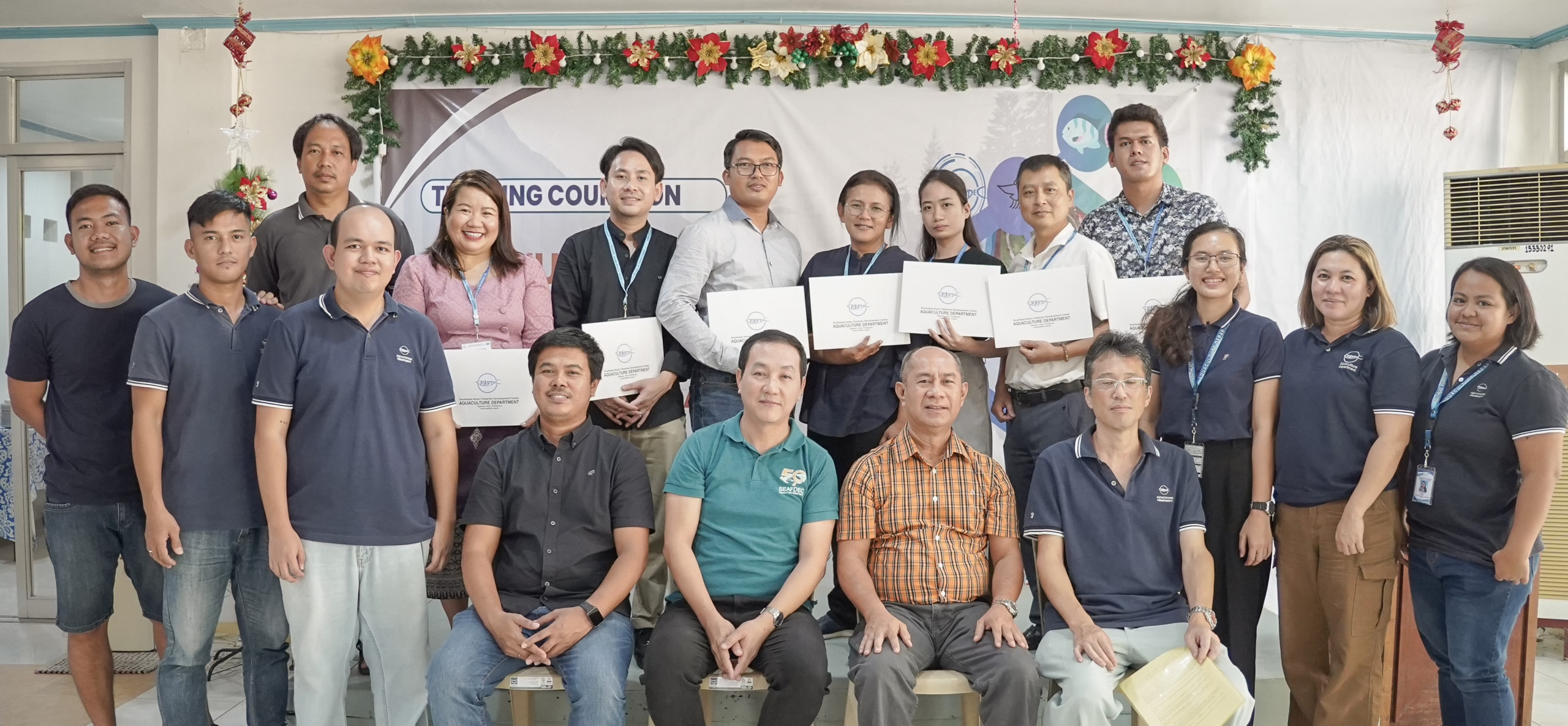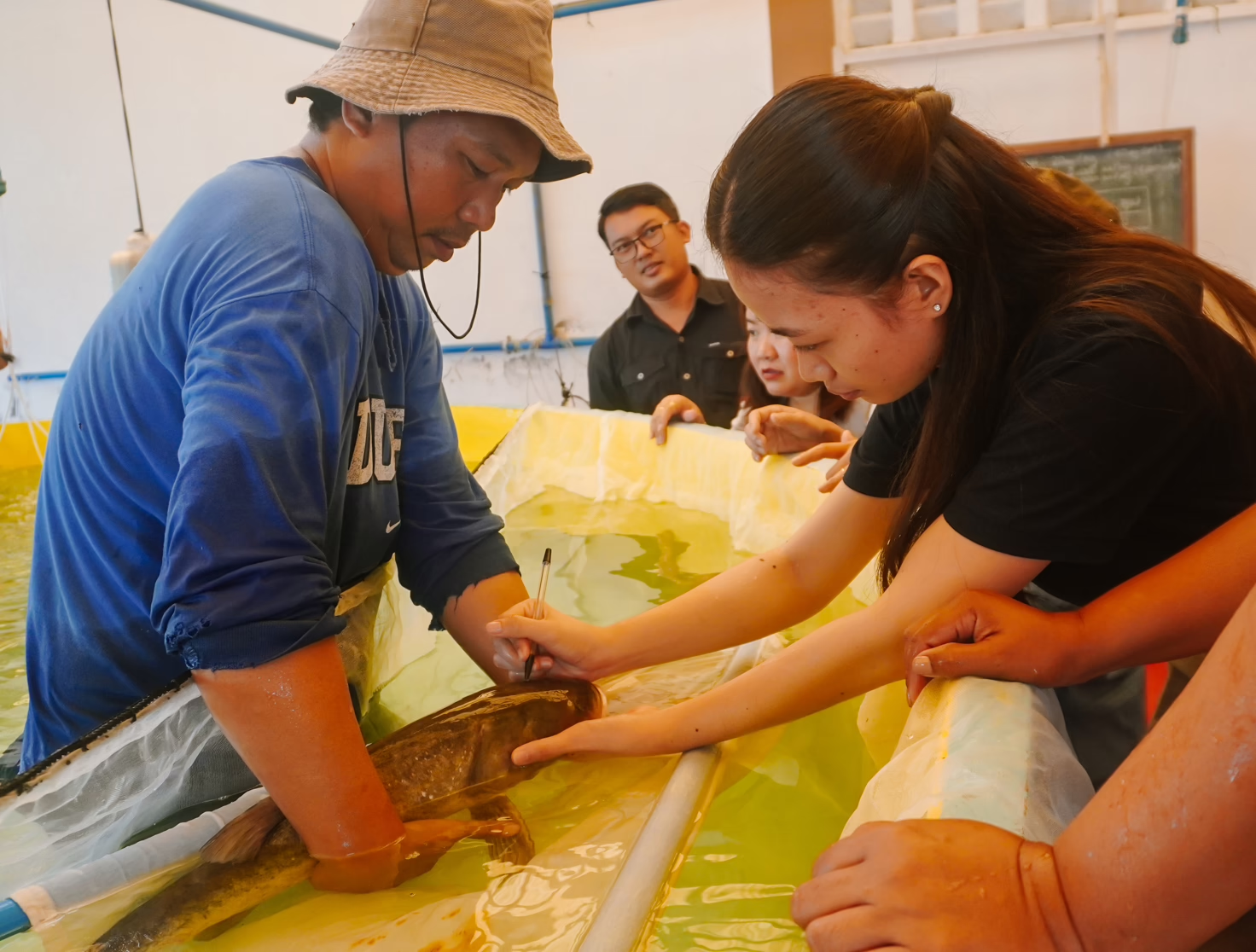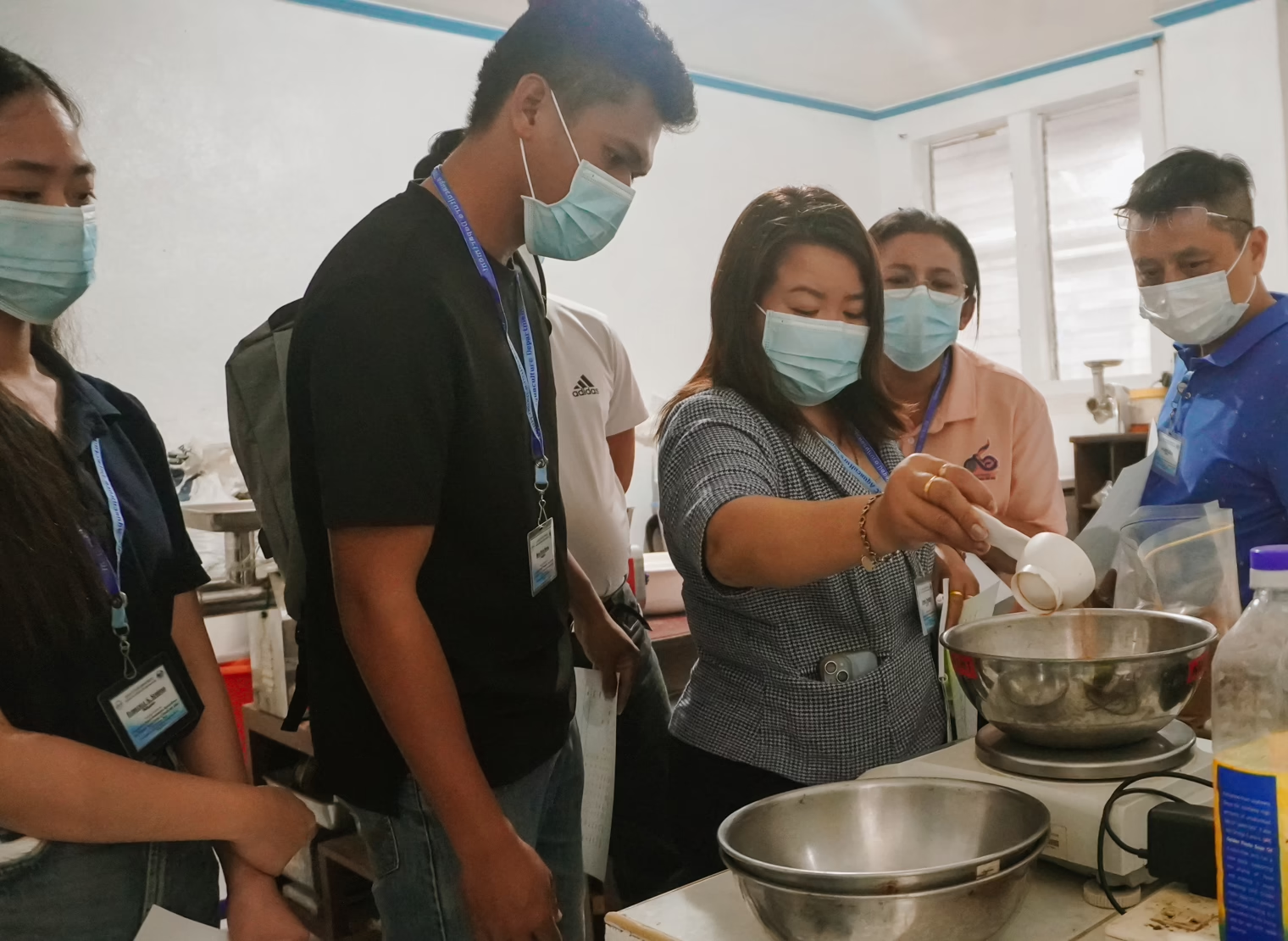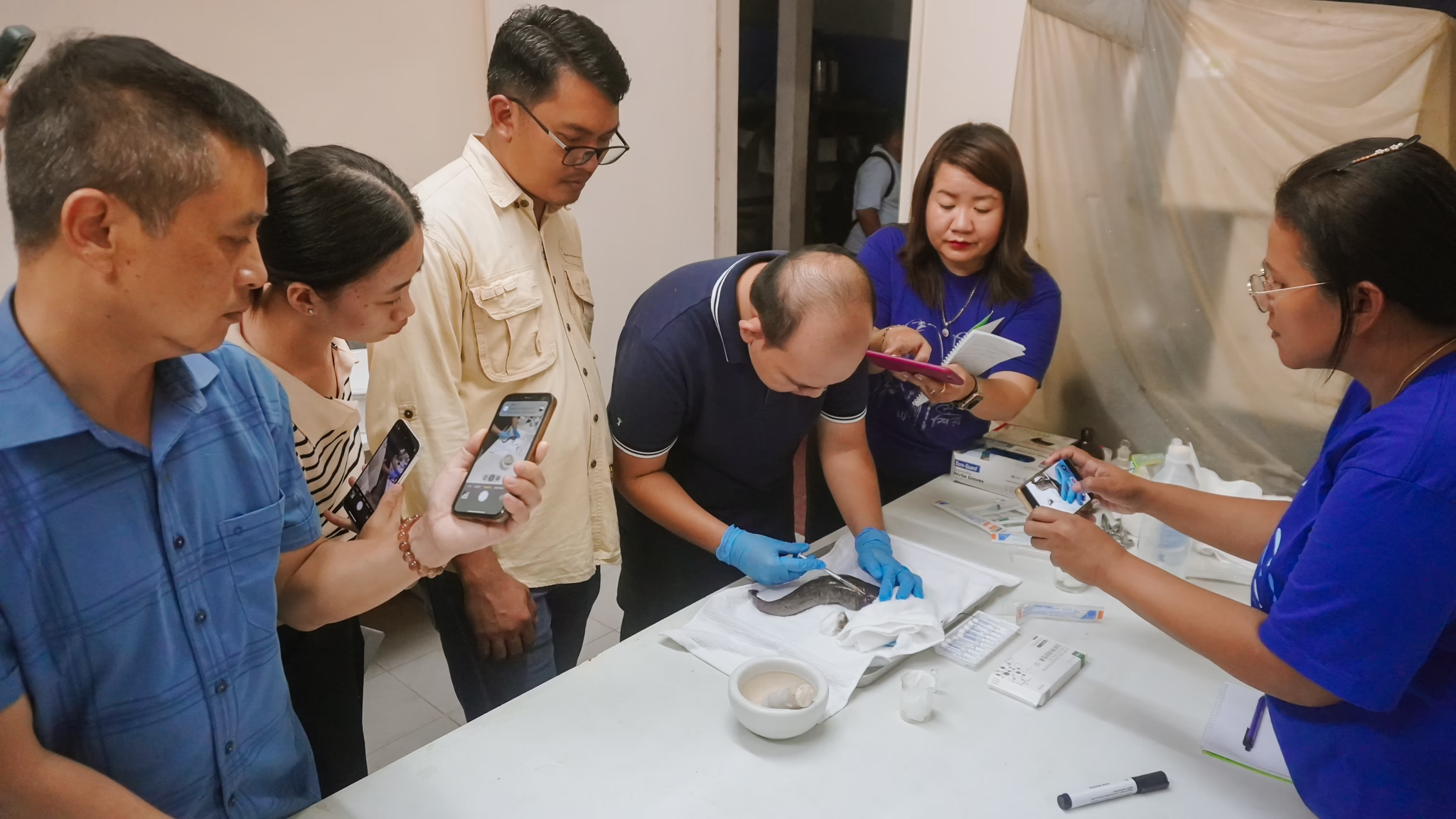 BINANGONAN, Rizal – Seven participants from five SEAFDEC-member countries completed a 14-day International Training Course on Community-Based Freshwater Aquaculture for Remote Rural Areas in Southeast Asia, held at SEAFDEC/AQD’s Binangonan Freshwater Station (BFS) from 13 to 27 November 2024.
BINANGONAN, Rizal – Seven participants from five SEAFDEC-member countries completed a 14-day International Training Course on Community-Based Freshwater Aquaculture for Remote Rural Areas in Southeast Asia, held at SEAFDEC/AQD’s Binangonan Freshwater Station (BFS) from 13 to 27 November 2024.
The training aimed to provide technical knowledge on freshwater aquaculture through lectures delivered by SEAFDEC/AQD specialists, hands-on exercises, and demonstrations focusing on sustainable aquaculture practices for rural communities. The trainees hailed from Lao PDR (two attendees), Cambodia, Thailand, Viet Nam, and the Philippines, each with aspirations for advancing aquaculture in their home countries.
Six of the seven participants were funded by the Government of Japan Trust Fund, while a private Singaporean company supported a Filipino participant.
Training Highlights
The program featured lectures and hands-on exercises that emphasized sustainable aquaculture practices.
Topics covered included: overview of freshwater aquaculture in Southeast Asia; hatchery and broodstock management; grow-out of commercially important freshwater species like tilapia, bighead carp, catfish, and freshwater prawn; aquatic ecology and water quality management; design and construction of tanks, cages, pens, and ponds; feed preparation and management; diagnosis and prevention of major fish disease; and sustainable management of small-scale farms.
Moreover, participants were taught how to prepare project proposals that could be implemented in their home countries.
Community Engagement
One of the highlights of the training was community engagement, which brought participants to Barangay San Isidro, Calauan, Laguna, for a seminar on giant freshwater prawn (GFP) culture, delivered by Dr. Frolan Aya, BFS Senior Scientist and Head, which emphasized the potential of GFP farming as a supplemental income source for local tilapia farmers.
The following day, the trainees conducted a Rapid Rural Appraisal (RRA) in Barangay Mabacan of the same town, spearheaded by Mr. Rheniel Dayrit of SEAFDEC’s Feasibility Team. Activities included seasonal calendar preparation, village resource mapping, and data collection through visual charts.
“I am grateful to SEAFDEC for providing training and seminars for trainees and fish farmers. It is a great help for agriculture and the progress of the community,” said Barangay Chairperson Jaycee Manalo.
The activity’s final segment involved problem-solving sessions where fisherfolk, mostly tilapia farmers, shared their challenges throughout the year. The trainees then provided feedback and suggestions to address these issues.
Expanding Horizons
The trainees also visited tilapia and eel farms and other aquaculture facilities in Laguna and Batangas. A courtesy call to Bureau of Fisheries and Aquatic Resources (BFAR)-4A Regional Director Sammy Malvas provided additional insights into regional aquaculture operations.
Insights
Florecille Serrano, an aquaculturist from BFAR’s Inland Fisheries and Aquaculture Division, said the training offered invaluable practical knowledge.
“It gave me the opportunity to acquire knowledge and hands-on experience in hatchery operations, grow-out, value addition, and other aquaculture operations. Furthermore, the skills I acquired can be applied to sustainable production, providing our fishermen with strategies to help boost their production,” she added.
Meanwhile, Nun Oudom, a government officer from Cambodia’s Fisheries Administration, highlighted the importance of aquaculture in his country due to increasing demand and limited fish catch.
“This training has brought me a bright understanding of how we can produce more broodstock and about breeding technology. These are things I’ve learned and will bring into practice at my institution and fisheries station,” he said.
On the other hand, Dr. Kommaly Onxayvieng from Lao PDR appreciated the opportunity to strengthen her network within SEAFDEC member countries. She remarked: “In this training, we learned how to manage aquaculture systems in rural areas and improve aquaculture production for the future.”
The closing ceremony featured remarks from Dr. Sayaka Ito, SEAFDEC/AQD’s Deputy Chief, and Dr. Edgar Amar, head of the Training and Information Division. They emphasized the importance of continuous learning and collaboration in advancing aquaculture across the Southeast Asian region to ensure food security.



 SEAFDEC/AQD Southeast Asian Fisheries Development Center | Aquaculture Department
SEAFDEC/AQD Southeast Asian Fisheries Development Center | Aquaculture Department



